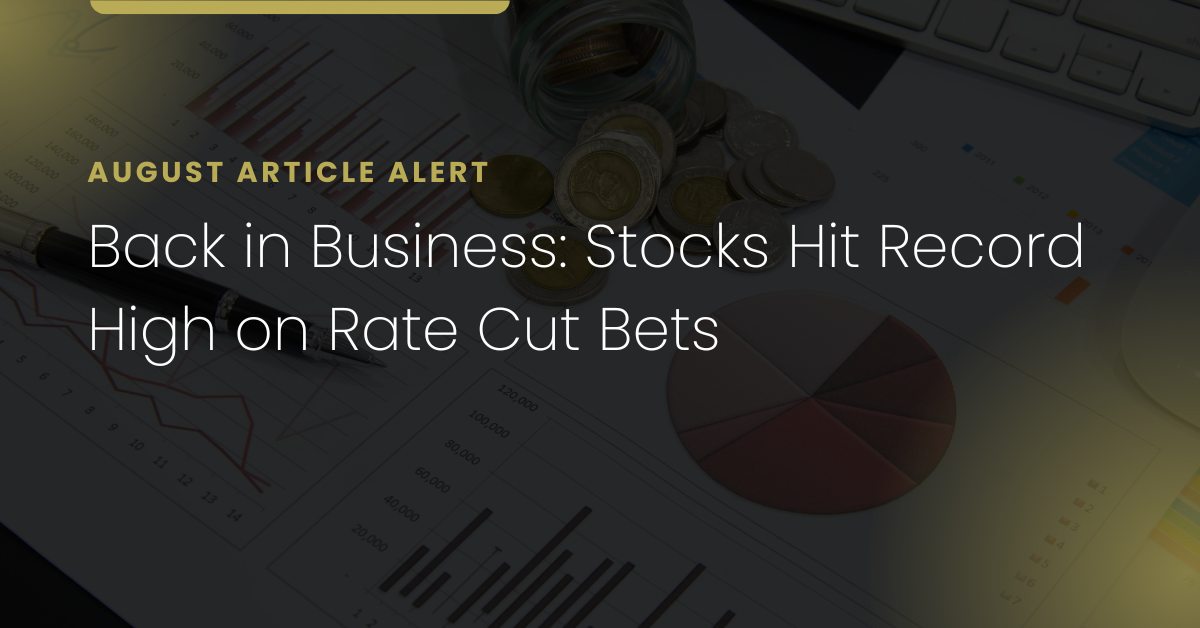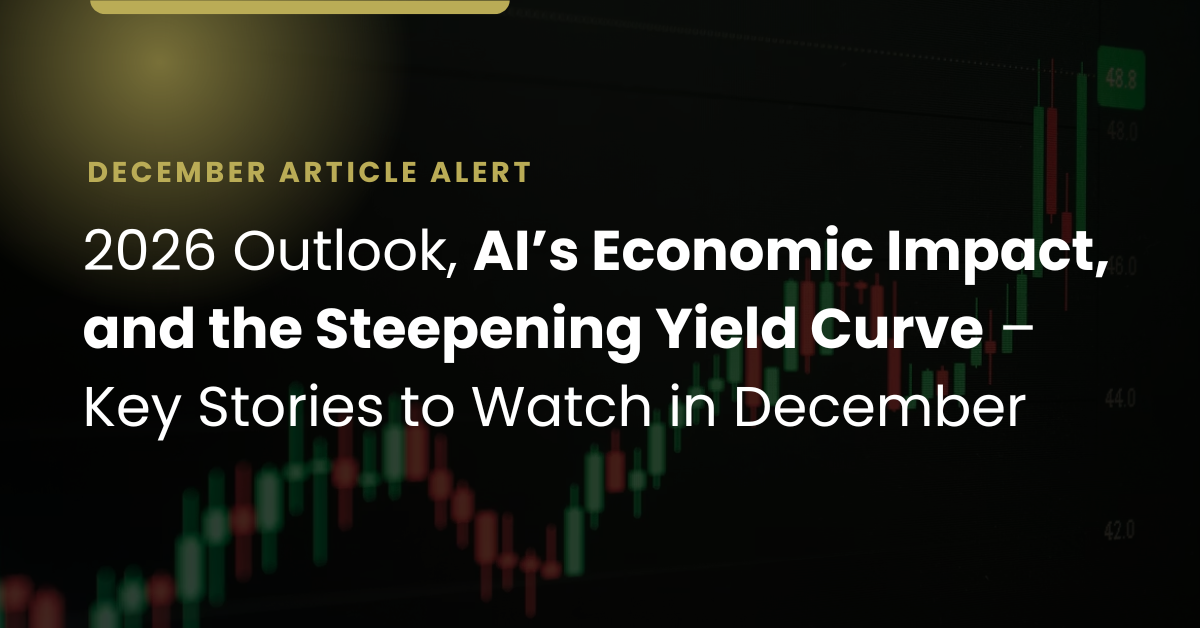At Marketing Wiz, our team actively monitors global financial markets to contextualize relevant stories for our clients and their stakeholders. This August, here are three themes that can serve as the foundation for a custom long-form article on behalf of your firm:
Back in Business: Stocks Hit Record High on Rate Cut Bets
- As recently as April, the US stock market was having a challenging year, with the S&P 500 down roughly 15%. Just a few months later, however, corporate America is back in business – stocks hit record highs in August.
- This rapid recovery isn’t just because of reduced tariff expectations. Investors are also increasingly confident that the Federal Reserve will cut rates to support the US economy, particularly as tariff-related inflation appears lower than anticipated.
- Despite these gains, risks have not evaporated from US markets. Elevated capex spending from large tech firms has raised the stakes for AI-related growth, and tariff uncertainty remains present. Nonetheless, a bullish earnings outlook has rewarded investors who stayed the course during recent volatility.
Brave New World: ‘Reverse Tariffs’ Enter the Trade War
- Throughout Donald Trump’s trade war, the US president has employed relatively conventional tools, including tariffs, sanctions, and export restrictions. But this month, a landmark deal with two leading tech firms introduced a new tool for Trump to wield – reverse tariffs.
- As part of an agreement for the companies to sell cutting-edge chips in China, Intel and AMD agreed to pay the US government up to 15% of their sales in the country. While traditional tariffs tax imports into the US, these reverse tariffs essentially tax exports originating from the country.
- So far, this new tool appears limited to the China chip deal. However, it could be employed more broadly to encourage domestic sales, generate revenue from high-value exports, or even extract concessions from US firms that Trump has clashed with.
Playing the Numbers: Data Integrity Concerns Mount Under Trump
- Investors and executives alike rely on sound economic data in order to make intelligent decisions. For decades, US economic data has generally been considered the gold standard in terms of reliability and accuracy.
- Under Donald Trump, however, data integrity concerns are mounting amid political attacks, institutional tensions, and questionable appointments. In August, the US president called the previous month’s jobs report “rigged,” and fired the head of the Bureau of Labor Statistics.
- Trump’s replacement to lead the BLS comes from a highly political background and has previously floated ending the agency’s monthly jobs report entirely. Looking toward the future, US economic data may not remain the gold standard for much longer.
Interested in building out long-form collateral relating to any of these themes? We invite you to reach out to our team today for a discussion of our custom content capabilities.
Craig Hall is founder and president of Marketing Wiz, a financial marketing firm specializing in the independent wealth management space.






